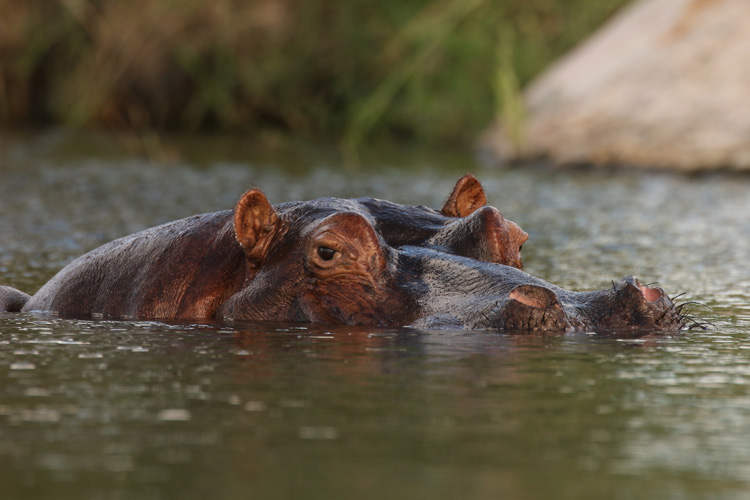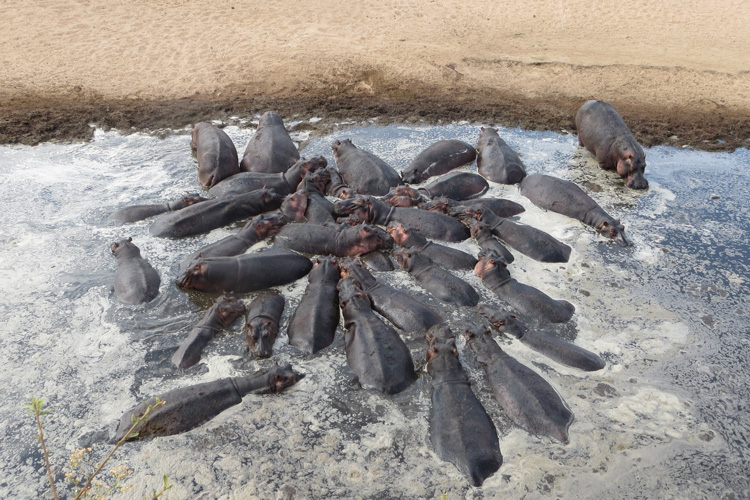Hippo poop a growing problem in African rivers

Frolicking hippos are a major tourist draw to African watering holes, but their bountiful poop is increasingly fouling African rivers and lakes during the dry season, killing off fish and other aquatic life.
Unfortunately, human activity is making it worse, according to a new study by UC Santa Barbara and UC Berkeley researchers.
For millennia, hippo dung provided a natural source of fertilizer that fueled aquatic life. The average hippo weighs more than 3,000 pounds and consumes about 100 pounds of vegetation daily, resulting in large quantities of dung being deposited into the rivers and lakes where hippos hang out during the day.
But decreased rainfall, water-intensive agriculture and deforestation in sub-Saharan Africa are altering water cycles and causing many rivers to begin to dry up.
As a result, the dung is accumulating in stagnant pools to levels that kill fish, including tilapia, a major food source for people living nearby, and other organisms.
“During the dry season when there was no flow, the pools were completely separated,” said UC Santa Barbara community ecologist Keenan Stears, the leader of the new study. “We found a huge buildup of hippo dung, and therefore nutrient concentrations, within high-density hippo pools. The high influx of nutrients caused the dissolved oxygen concentration to decline to sublethal levels for most fish species.”
“Global change has turned productive hippo pools, once teeming with fish and life, into fetid black cesspools,” added co-author Douglas McCauley of UC Santa Barbara.

The findings highlight the value of accelerating more efficient water-management policies and land-management practices not only for the conservation of hippos but also to ensure the sustained health and functioning of African watersheds in a changing environment.
Co-authored by Justin Brashares, a Berkeley professor of environmental science, policy and management, and Todd Dawson and Mary Power, Berkeley professors of integrative biology, the study examines how global change is redefining the way hippos — and their dung — shape the ecology of freshwater ecosystems. The study was posted online May 14 in advance of publication in the journal Proceedings of the National Academy of Sciences.
Related information
